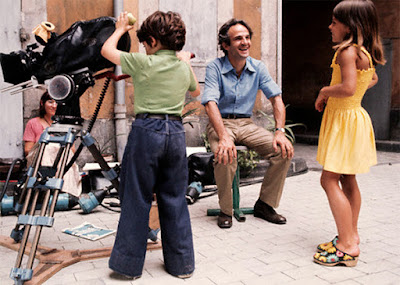“So Much Innocence”: Wes Anderson on Truffaut’s SMALL CHANGE
In 2002, when director Wes Anderson, fresh from THE ROYAL TENENBAUMS, was approached by the New York Times to talk about a movie that was deeply meaningful to him, he chose Truffaut’s SMALL CHANGE, a charming, mostly improvised comedy about school kids in a small French town. The interview is very interesting, especially in light of some of Anderson’s subsequent work, especially the very SMALL CHANGE influenced MOONRISE KINGDOM.
Anderson goes on at some length about SMALL CHANGE’s specialness:
”There are all of these threads, all of these people and story lines, but it also feels very free, as though we can join any character at any moment. There are some characters who have just one scene or just one moment, and then a few who kind of continue throughout the whole movie and have their own developing stories. But when they’re introduced, they’re all introduced in the same way, so you’re never sure who is going to turn out to be important and who’s making their only appearance. It’s very rare to introduce characters that way, yet it doesn’t feel like a stunt the way Truffaut does it. It feels very natural.”
And remembers his time as an undergrad at the University of Texas when he read Truffaut’s letters and gained a greater insight about the man and his work. He describes a letter from the very young Truffaut to a friend:
”There is a letter of apology from Truffaut that is so overstated,” he said. ”The language is very flowery, and you get the feeling that, in this relationship, Truffaut felt himself to be intellectually superior and was the dominant personality between the two. But at this point, he was clearly guilty and kind of vulnerable and exposed, and he was trying to maintain the upper hand in their relationship at the same time he couldn’t be more guilty. What’s interesting is to see how this kid, who came from such a brutal background, went through all of this and came out, in the 1970’s, with this humane, gentle attitude about it all.”













